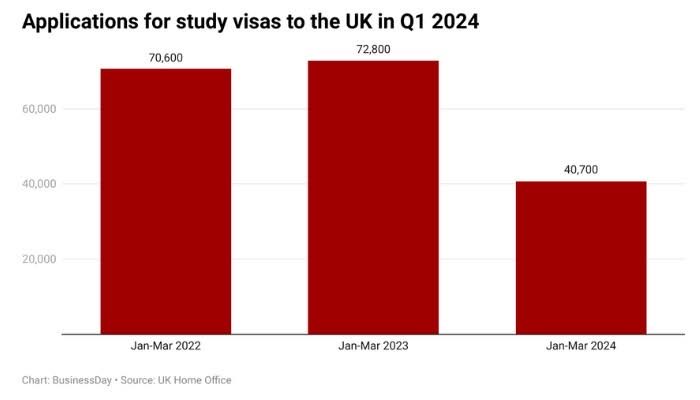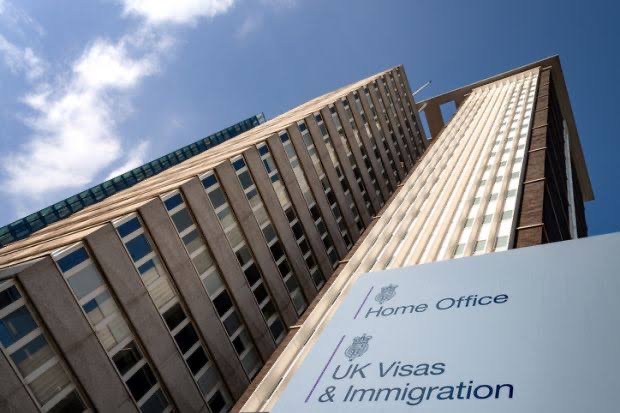New Home Office data shows a 46 percent drop in study visa approvals from Nigeria between May 2023 and June 2024, with more than 30,000 fewer Nigerians getting UK study visas last year.
Data released on Wednesday showed that 58,680 Nigerians were allowed to study in the UK during the same period last year, after an initial surge, but enrolments have now fallen to about 31,700.
Applications fell after the previous UK government introduced new rules on visa entitlements, including a ban on relatives of international students who are not postgraduates.
“Policy changes are one of a number of factors that may have impacted visa application volumes,” the Home Office speculates.
Jo Grady, general secretary of the University Union (UCU), said, “The previous Government made international students and staff feel very unwelcome, and many were forced to leave family members behind to even come to study or work here.”

More than 500,366 visa applications were made in the UK by international students in the year to June 2023, of which more than 59,000 were from Nigeria. This number fell to 443,932 in June 2024. According to the Home Office, 432,225 sponsored study visas were issued to main applicants during the period, down 13% from last year but 61% higher than in 2019.
This decline has cost UK universities a lot of valuable funding.
UK universities that rely on international tuition fees missed out on more than £1.2 billion in tuition income last year due to the fall in international student numbers, according to an analysis by the Centre for Economics and Business Research reported by Journalists last week.
Fees paid by visa-issued international students in the 12 months to March 2024 were an estimated £26.9 billion, down from £28.1 billion the previous year, according to the research consultancy. This fall in applicant numbers could create a precarious funding crisis that could force some universities in the country to close, cut staff, or merge.
Some universities cannot withstand the pressure and have already sent letters to employees informing them of the “risk of redundancy” and the option to either voluntarily resign or apply for a limited number of posts. The University of Kent proposed in February to cut 58 jobs and nine courses to address financial difficulties.

“It will be necessary to await the peak in student applications for the next academic year (which usually comes in August/September) before we can see the full effect of policy changes
Africa’s most populous country, Nigeria, has been the main driver of the increase in international student numbers to the UK in recent years. With a young population, the country was the third largest supplier of international students outside the EU, after India and China. The country is currently trailing Pakistan, which was ranked third in the latest results.
Grady suspects that the fluctuation of the Nigerian naira may also be a factor in the recent economic changes. As the naira continues to fluctuate, more Nigerians are finding it difficult to pay their tuition fees abroad.
“There’s been obviously clear problems that we’ve seen where the amount of students applying from any one country can be completely dependent on what the currency in their home nation is. We’ve seen this recently with Nigeria,” Grady said.
In the year 2023 to June 2024, 94,253 visas were issued to student dependents, down 39% from the previous year but almost six times higher than in 2019.
“The decrease in dependants of students followed a policy change for courses starting on or after 1 January 2024, whereby only researched-based postgraduate students are now allowed to bring dependants (partners and children) to the UK.”
In the first six months after the reforms were announced, the number of sponsored study-dependent visas issued fell 81% to 11,675 compared to the same period in 2023.































